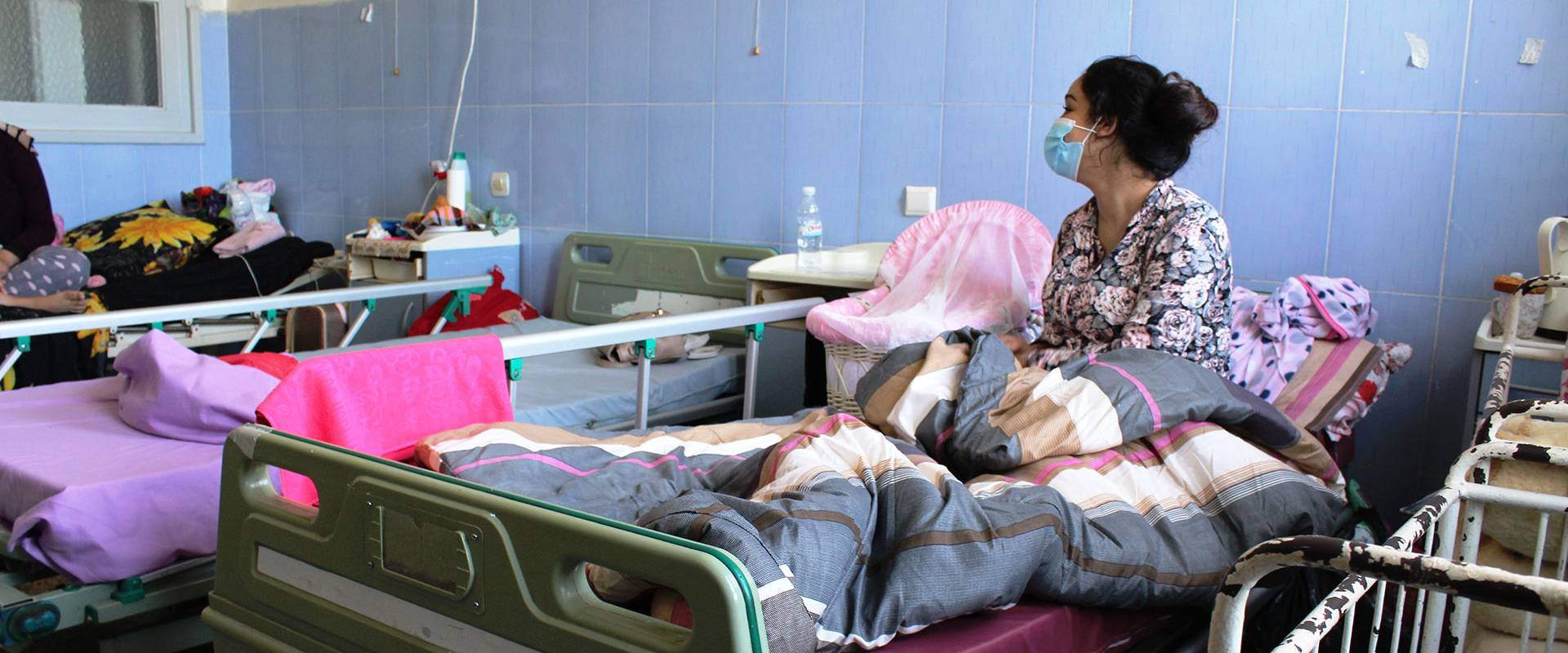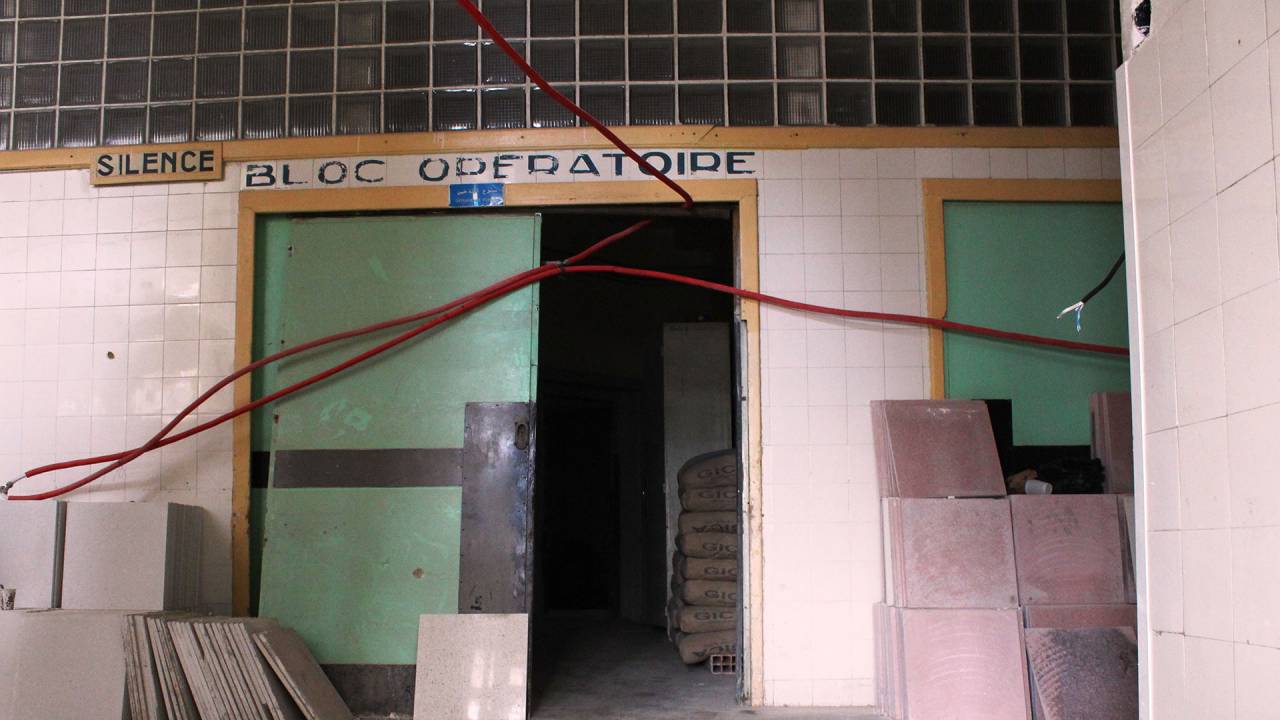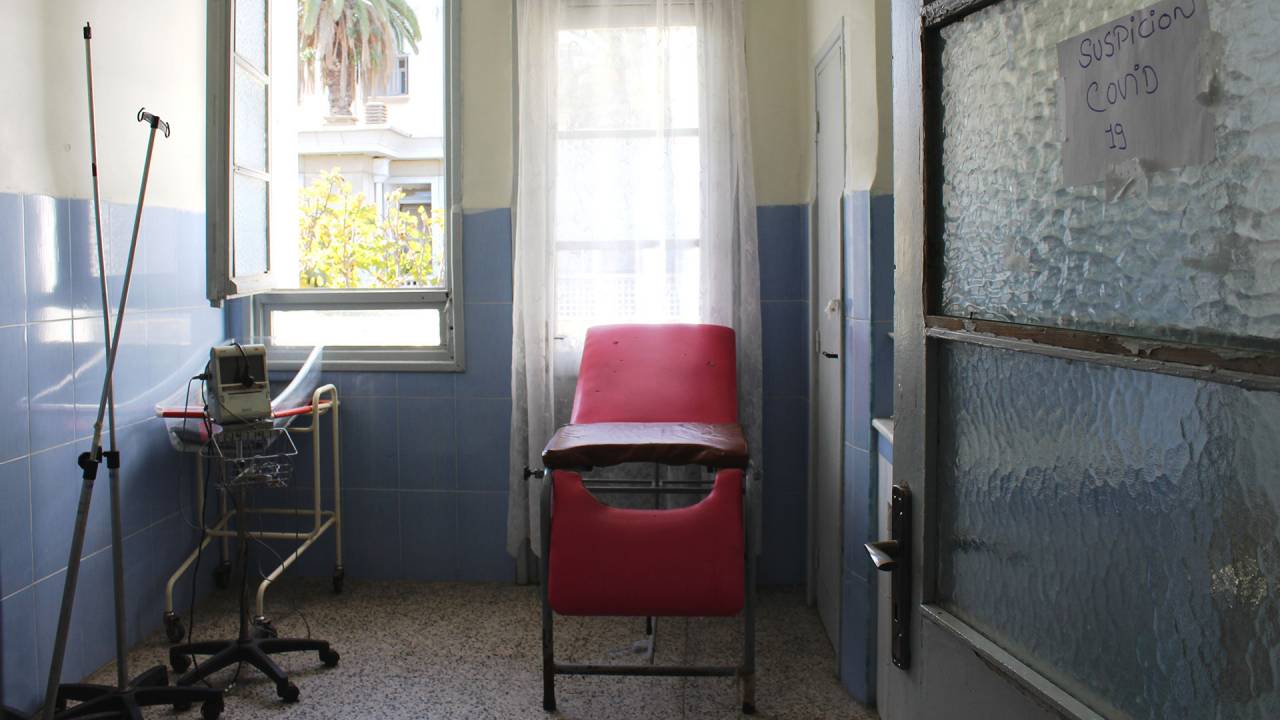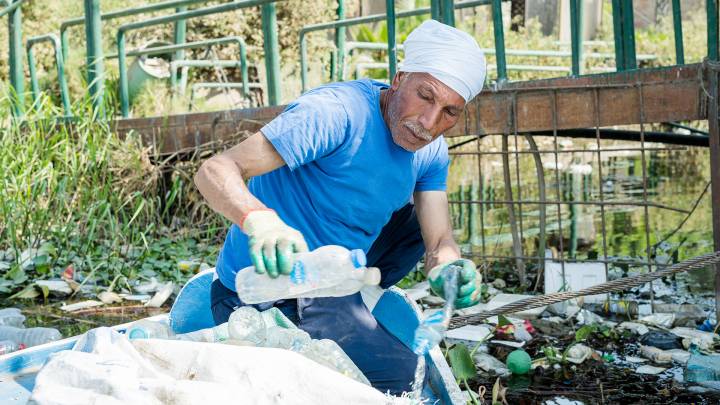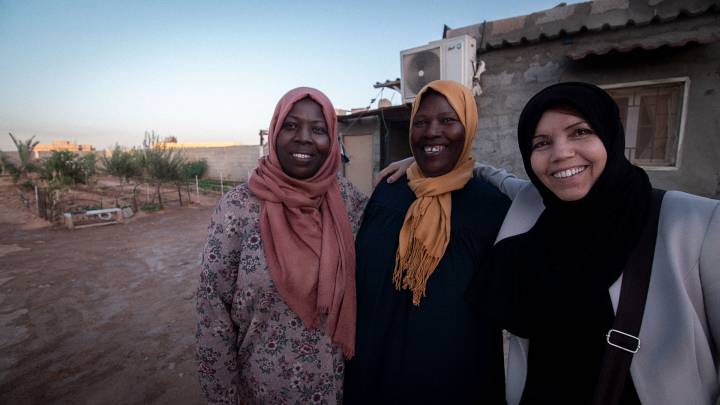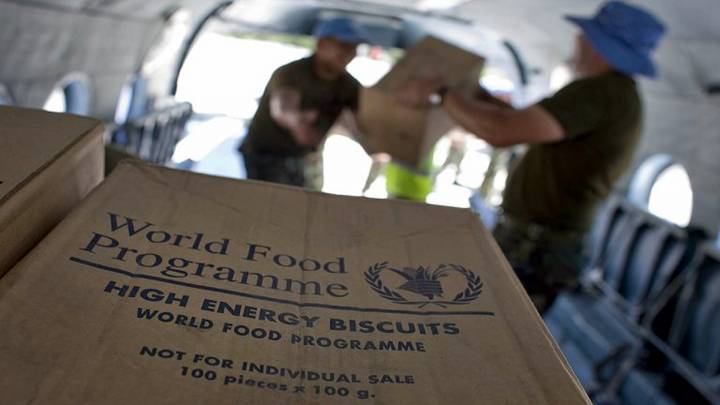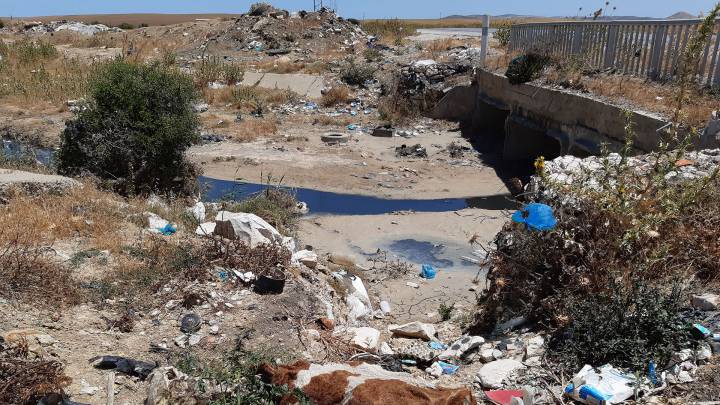Algerian soon-to-be mothers go through terrifying experiences while navigating the country’s overburdened healthcare system that deals with both workforce and material shortages.
“I was convinced I was going to die”. Ten months after giving birth to twin boys, Saadia, a 30-year-old housewife, is still traumatised by her painful experience. What should have been one of the most joyful days of her life turned into a nightmare. When her water broke, Saadia, accompanied by her husband, went to Zeralda public hospital, located in Algiers’ western suburb.
After countless time spent in the over-crowdedemergency room, she had to wait again in the hallway of the maternity unit, inundated with other mothers-to-be. “I was weak; I didn’t eat the whole day, but there was no seat in the corridor. I had to sit on the floor to get some rest”, she recalled.
After an examination, the resident sent her back home, even though her unborn babies were showing signs of distress. “It was a Saturday, and during the week-end the maternity wards are even more under-staffed than the rest of the week. The resident was trying to get rid of me. But I urgently needed to have a caesarean section; as the lives of my babies were at risk”, she said.
Like Saadia, thousands of expectant mothers, across Algeria, face similar difficulties every day to access public facilities providing free care, amid a chronic workforce shortage. “At night, there were no nurses available to track my progress, or to give me post-operative pain treatment”, said Saadia, who later spent three days at Zeralda hospital after her surgical operation.
Today, 75% of the country’s gynaecologists work in the private sector, whereas more than 80% of pregnant women are treated in state-owned hospitals, according to the union of healthcare providers. “Fields as demanding as obstetrics and gynaecology have become a flourishing business. Therefore, it is one of the highly sought-after medical programs at the universities. The students would rather join a private clinic or move abroad than work in public facilities”, Karima Araoui, a child psychologist, said.
“How can an already short-handed healthcare system cope with extra workload?”
Back in the mid-1990s, the exodus of public sector medical staff to the private sector accelerated, while the country – on the brink of bankruptcy – had carried out a drastic expenditure-cutting plan, and encouraged the liberalisation of the health system in an effort to control the government debt.
At that time, many private clinics, as well as small private practices, opened their doors. “We left with a heavy heart”, said Ghaouti Benabadji, who has run his own private practice since the early 2000s after being employed for years at Oran state-run hospital.
The private practitioner blames the escalating bureaucracy, the mismanagement, and deteriorating work conditions related to the austerity program. “We were overwhelmed and could no longer treat our patients correctly. I was not just a gynaecologist anymore; I often played the role of a nurse or an administrator. That was too much”, he added.
In the private sector, obstetricians and gynaecologists find what they cannot in the public sector: “both personal and professional achievement”, Mohamed Mebtoul, a health anthropologist, said. “There, they enjoy better work conditions, more autonomy, and are paid much more. They become an elite”, the expert added.
The midwifery workforce has also been in crisis; since thousands of skilled care-providers choose to apply for early retirement, after the reform of the pension system in 2017. The number of midwives has been halved, dropping from 8,000 in 2014 to 4,000 in 2020, according to the union of midwifery.
The coronavirus pandemic has made the staffing crisis far more dire. In the mountainous region of Tissemsilt, a group of midwives infected with covid-19 went on strike in June, as they were forced to continue working. “They protested to protect their patients from a contagion”, Akila Guerrouche, the president of the union of midwifery, said.
Health authorities struggle to recruit new skilled midwives. With the new selective training program, which lasts five years instead of three, many students drop out of the school of midwifery, and opt for more high-paying and appealing medical professions. “They are discouraged because it is a very physically demanding and underpaid job. We have a lot of responsibilities, but little recognition. At the end of their career, many suffer from tendonitis and osteoarthritis but those are not recorded as work-related illnesses”, Guerrouche said.
Lyes Merabet, president of the union of healthcare providers, said the government must do much more to address the staff shortage and the regional-based health inequities. “It is not only about salary increase; the government should pay attention to improve the work environment. Relaxing areas inside the hospitals, and free nurseries and transportation should be made available for health workers to encourage them to remain working in the public sector”, Merabet said.
With one of the world’s highest fertility rate at 3.5 children per woman, according to the Ministry of Health, short-staffed and ill-equipped maternity services have been under increasing pressure. More than one million children have been born every year, since 2014. In a country where half of the population is under 30, and the majority of women are at an age of procreation, the maternal care crisis is likely to amplify. “How can an already short-handed healthcare system cope with extra workload?”, Benabadji asked.
Deplorable work conditions leave the medical staff “much less empathic”
Stressful work conditions drive some care-providers to be disrespectful, and verbally and physically abusive. “We don’t work in a quiet environment. In the rush, we can be so irritated that we lose our temper”, Hakima Cheriet, head of the midwifery at Mustapha Pacha hospital, the country’s largest hospital, said. During labour, many women experience obstetric violent acts, such as being pinched, slapped, shouted at, or mocked.
In the hospital room, Saadia met with a first-time mother, who was badly treated. “The midwife pressed on her abdomen with her knee to try to make the baby come faster, while the doctor yelled at her because she was –supposedly– complaining too much. She had to punch them to stop them from hurting her”, she said.
Deplorable work conditions leave the medical staff “much less empathic”, Nadia Chouitem, a doctor and former member of the parliament, who resigned amid the grassroots pro-democracy movement known as “the Hirak”, said. “Confronted with the lack of employees, beds, and medical supplies, they feel helpless, and sometimes don’t have answers to give to patients”, she explained.
A large part of the medical workforce, including security agents and cleaning staff, is poorly trained and underpaid. Chouitem, who is also a member of the Workers’ Party, a far-left opposition party, added: “Being a security agent is a job like any other, for those employed at a hospital, because they are not taught how to welcome patients. The cleaning and technician staff members are not trained on adequate hygienic and disinfecting efforts either. We cannot expect more from people who are paid less than 10,000 DZD per month (approximately 65 Euros)”, she said.
The Ministry of Health admits that the relationship between health workers and expectant mothers needs to improve. “There is no communication skills course at medical schools, and this should change”, Lamia Yassef, a senior officer in charge of the neonatal program at the ministry, said.
“Long-distance travel can cause dramatic trauma or worse”
The situation is worst for the soon-to-be mothers living in rural and desert regions, where health services are very limited. According to midwives, nearly a third of pregnant women admitted in Algiers’ hospitals come from different regions, where they do not find the medical help they need. To avoid long distance travel, some prefer omitting prenatal check-ups, despite the risk of complications around the time of birth.
While the Ministry of Health recommends at least five ultrasound scans throughout the pregnancy, “some poor expectant mothers, living in remote areas, attend no prenatal check-up appointment at all, because they live too far from public facilities, and travelling with a taxi costs too much for them”, said Mohamed Harcha, a private-practising obstetrician in Adrar, a Saharan city located nearly 1,400 km south of the capital.
Harcha is one of the rare gynaecologists coming from a southern region who have moved back to their hometown after graduation. Even during his summer holiday, his phone keeps ringing. “If I want to enjoy a holiday, I must leave Adrar. Otherwise, I have no other choice but to continue working due to the high demand”, he said.
While running his practice, he volunteers at the public hospital, where he had worked for years. He offers free care, and without being paid, he replaced a pair of gynaecologists infected with COVID-19 this summer. “This is the least I can do for my neighbours”, he said.
In Africa’s largest country, some have no other alternative but to drive for hours, sometimes in harsh roads, to reach an urban centre in order to safely deliver their baby. “At the hospital, we can see heavily pregnant women coming from Bordj Badji Mokhtar – a city located 750 km south of Adrar – with their own vehicles”, Harcha said.
But delay in receiving care reduces the chances for a good birth income, Araoui warned. “Long-distance travel and prolonged waiting time, because the unit overflows or patients with connection within the medical staff may be seen first, are a serious problem. This can cause dramatic trauma to the fetus – or worse the death of the mother-to-be”, she said.
Those who can afford it consider shelling out up to 100,000 DZD (approximately 650 Euros) to give birth in a better-equipped private hospital; but this is not an option for the majority. “Some start saving money right after their wedding to be treated in a private clinic, while others sell their jewellery not to be at the mercy of public hospitals”, Amel Hachem, a professor of demography at Oran university, and an expert in the reproductive health system, said.
“It is common to see women sharing a bed due to the lack of space and equipment”
Even though the budget of the Ministry of Health has doubled since 2009, reaching up to 4 billion Euros, women still give birth in cramped conditions. Most of the country’s university hospitals are colonial buildings that were never meant to welcome as many people and slowly fall into ruins, with regular water leaks, electricity outages, and outdated medical materials.
In the oil-rich country, giving birth is not just a fight for a new life; it can also be a struggle for dignity. “There is not a door, but a simple curtain to close the delivery room of a hospital in Adrar. In Constantine, I saw a woman in labour falling from a delivery table, and the midwife called the security agents to help carrying her. Privacy is precious for any Algerian woman, but it is not always ensured in the healthcare facilities”, said Hachem.
Last January, pictures showing women, who had just given birth, lying down on the floor of Kouba hospital in Algiers, and waiting for a bed to become available, were anonymously released on social networks, sparking an outpouring of emotions. Nevertheless, this is far from being unusual. “It is common to see women sharing a bed due to the lack of space and equipment”, Cheriet said.
After giving birth to her first child, Saadia ended up in a room not properly cleaned and sanitised, where she had to share her bed. “It was infested with cockroaches and there were damp spots on the walls”, she said.
“People should get the care they need no matter who they are or where they live”
The state’s administration has made huge advances in lowering the maternal death rate. The maternal mortality rate has been reduced by more than 50% between 1999 and 2016, from 117.4 maternal deaths per 100,000 live births to 57.7 maternal deaths respectively, according to the Ministry of Health. This decline is an important element in achieving the third goal of the UN’s Sustainable Development Goals: “Good Health and Well-being”. However, Algeria’s maternal mortality remains among the highest in North Africa, while many of the pregnancy-related deaths are preventable.
“Early identification and appropriate management of mothers at risk of postpartum haemorrhage, pre-eclampsia, or other complications can help reduce the maternal death rate even more. This is our top priority”, said Yassef, calling for a better coordination between the public facilities. “We need to find ways to encourage pregnant women to visit local polyclinics when they don’t suffer from any complications, instead of systematically rushing to the over-crowded hospitals, which should be primarily reserved to pregnancies at risk”, she added.
The government has also committed to renovate maternity wards in old hospital buildings. While completing the renovation of the shabby maternity service in the university hospital of Constantine, in eastern Algeria, it has begun to restore the maternity department of the capital’s historic Mustapha Pacha hospital.
Last spring, in an effort to reduce the public hospitals congestion, the government launched a healthcare reimbursement program, allowing women with insurance to give birth in one of the officially appointed private clinics without having to pay. “This won’t resolve the maternity crisis since millions of women don’t have insurance, and private clinics don’t admit women with high-risk pregnancy. People should get the care they need no matter who they are or where they live”, Chouitem said.
For Merabet, Algeria’s healthcare system is obsolete and inefficient, and must be reformed. “What could work in Algiers might not work in the southern region. Local health managers should have more influence in the decision-making process, and doctors should have more autonomy. We have been waiting since 1985 for the establishment of regional health monitoring offices”, Merabet said.
Likewise, Hachem described the governance of public facilities, including public maternity wards, as “dysfunctional”, mostly because the culture of accountability is inexistent. “Algeria’s healthcare is sclerotic. Heads of both hospitals and units are appointed by the government and serve for undetermined period. Some have held their position for decades. Instead, they should be elected for fixed terms, and be held accountable”, the expert said.
Nevertheless, wide-ranging healthcare reforms cannot be passed, as long as there is no room for political change, Mebtoul said, echoing Hirak protesters’ call for a complete overhaul of the country’s political structure. Since February 2019, anti-establishment activists have been pushing for a democratic transition, and to end the opaque unaccountable authoritarian system that has prevailed in the North-African country since it had gained its independence from France in 1962.
In this system, Algerian people’s right to receive high-quality and safe care is denied, Mebtoul said. “Algeria’s healthcare system is extremely vertical and highly centralised, and it relies on political and administrative orders exclusively. It does not give a voice either to the medical staff or to the patients and their families. All are subjects and must obey”, the anthropologist explained.
He added: “In this system, there are anonymous patients and privileged patients, but there is no healthcare user. As long as Algerian people are not considered citizens, but rather seen as subjects, pregnant women will still experience traumatic journeys”.
Saadia, a happy mother of three little boys, dreams of welcoming a little sister into her family. “But I don’t have the energy to go through all this again. Maybe in few years. I need more time to recover”.
The research for this article was supported by the Candid Foundation’s journalism grant.
